1. Install and Change Default Configuration
Install:$ sudo apt install anjuta libtool-bin
Download anjuta-config.sh
Then run it as root:
$ cd ~/Downloads $ sudo sh anjuta-config.sh
#! /bin/sh # # change Anjuta C/C++ default configuration # D="/usr/share/anjuta/templates/minimal" echo "Working in $D/" cd "$D" || exit 0 # backup the original if not done already if [ ! -r anjuta.session.ORIG ]; then echo "Making backup copy of anjuta.session" cp -p anjuta.session anjuta.session.ORIG fi echo "Editing anjuta.session" sed -e "s;BuildArgs/Default=.*;BuildArgs/Default=--disable-silent-rules \ 'CFLAGS=-g -std=c11 -pedantic -Wall' 'CXXFLAGS=-g -std=c++17 -pedantic -Wall';" \ -e "s/Selected Configuration=.*/Selected Configuration=Default/" anjuta.session.ORIG > anjuta.session echo "Done."
2. Create a New Generic C Project
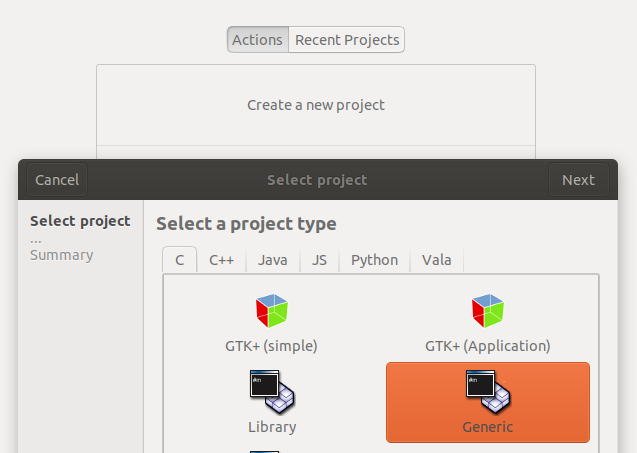
3. File -> New -> Project
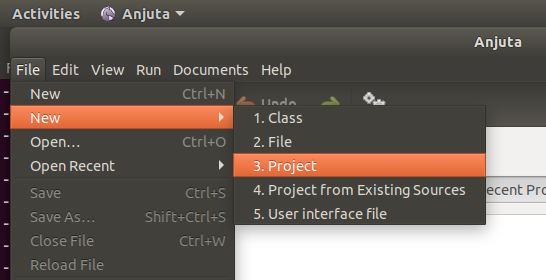
4. Project Options
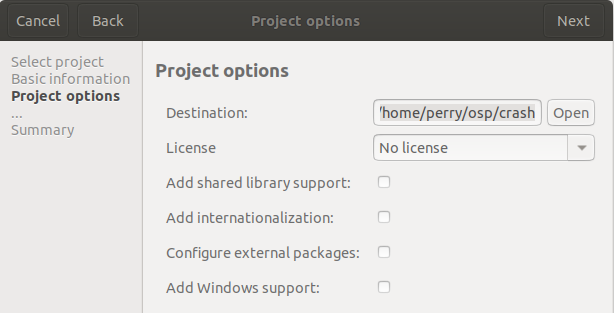
5. File -> Open ...
Find existing project not listed elsewhere - select the project .anjuta file
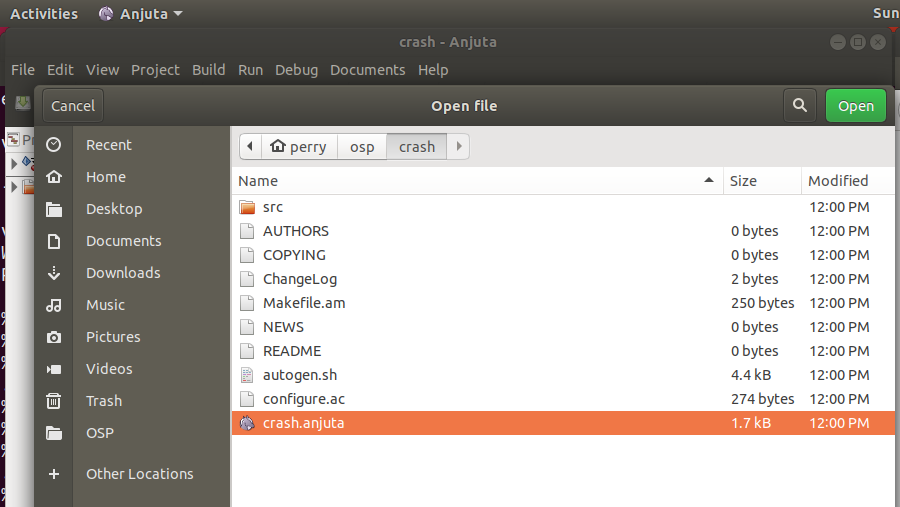
6. Build -> Configure Project ...
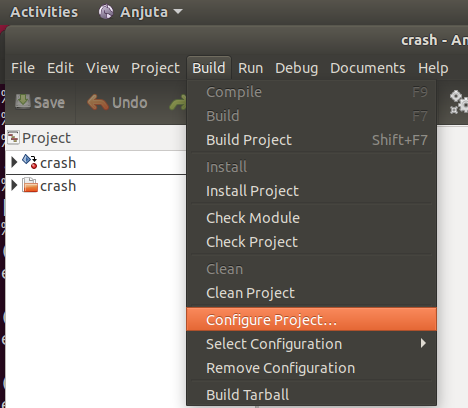
7. Configure Options

8. Compile Project
make at the top level:

make in the src/ subdirectory - use this one:

Run:

9. Edit
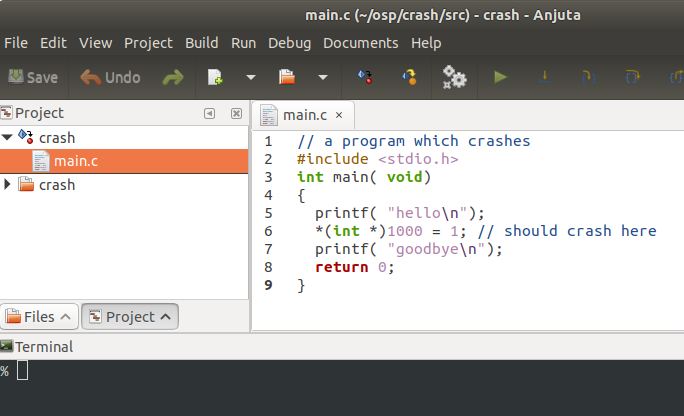
10. File -> New -> File ...
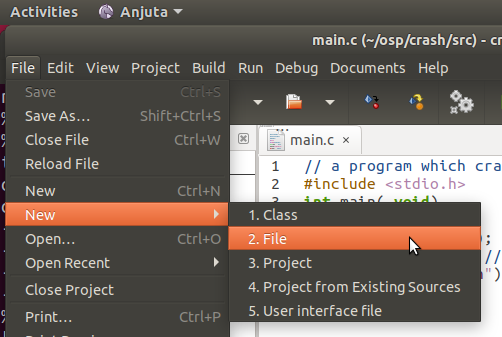
11. New C Source or Header File
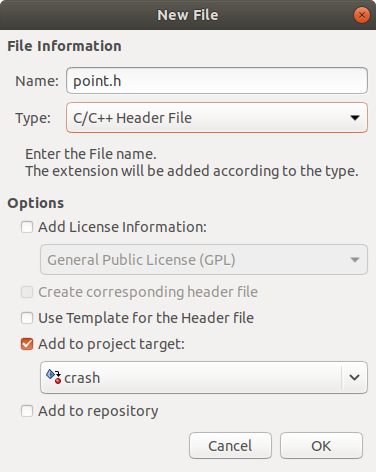
12. Crash

13. Run the Debugger: gdb
% pwd /home/perry/osp/crash % gdb -q src/crash Reading symbols from src/crash...done. (gdb) run Starting program: /home/perry/osp/crash/src/crash hello Program received signal SIGSEGV, Segmentation fault. 0x000055555555464f in main () at main.c:6 6 *(int *)1000 = 1; // should crash here (gdb) where #0 0x000055555555464f in main () at main.c:6 (gdb) quit A debugging session is active. Inferior 1 [process 7189] will be killed. Quit anyway? (y or n) y %